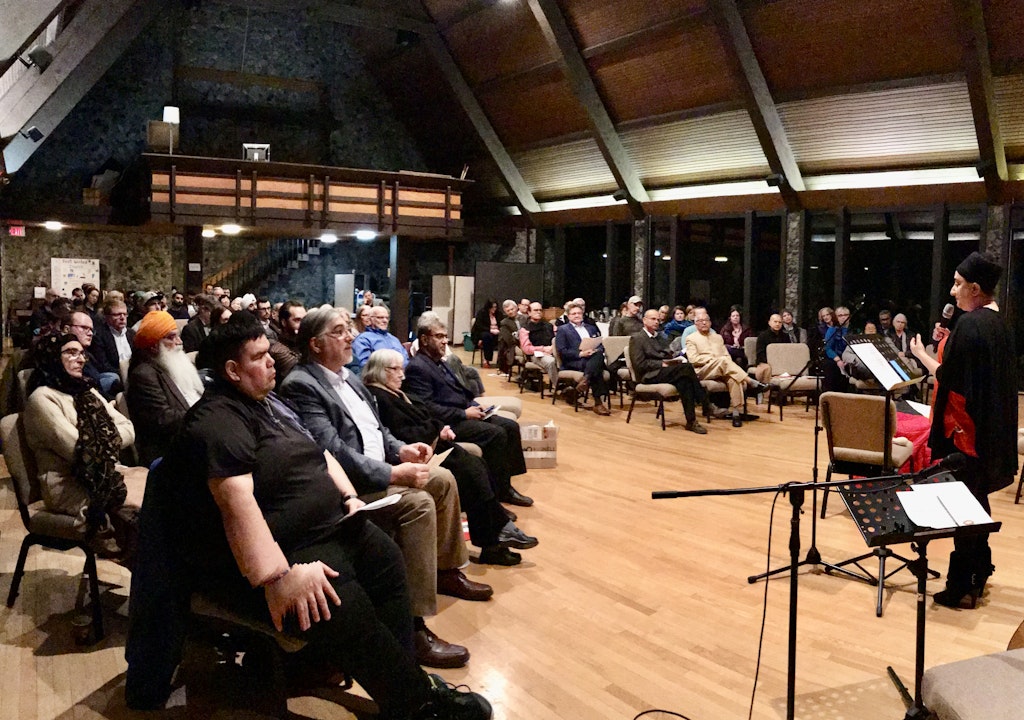In the grand tapestry of human understanding, two threads—race and science—interweave to shape our perceptions of identity, knowledge, and progress. The Baha’i teachings provide a compelling framework to explore this intricate interplay. At the heart of Baha’i doctrine is the assertion of the oneness of humanity, a principle that underscores the indissoluble connection between every individual, regardless of their racial or ethnic backgrounds. This perspective offers a unique lens through which to examine the dynamics of race and the role of science in fostering unity and understanding.
First, let us delve into the concept of race through a Baha’i lens. Conventional paradigms often categorize race as a biological determinant, but Baha’i teachings assert that race is largely a social construct. ‘Abdu’l-Bahá, the son of Baha’u’llah, the founder of the Baha’i Faith, articulates that “the diversity of human races is a manifestation of the boundless wisdom of God.” This elucidation invites us to challenge reductive notions of racial superiority or inferiority, prompting a profound interrogation of societal structures that perpetuate division.
Imagining humanity as a symphony, each racial identity contributes its own unique melody, collectively creating a harmonious composition that reflects the beauty of diversity. This metaphor encapsulates the Baha’i belief that our differences should not only be acknowledged but celebrated. In an era where racial tensions often surge, Baha’i thought urges individuals and communities to embrace their multifaceted identities while striving toward unity. This pursuit does not call for the erasure of distinctiveness; rather, it advocates for the recognition of common purpose in the face of adversity.
The intertwining of race and science emerges prominently in the discussion of racial prejudice and social justice. Scientific inquiry has frequently illuminated the fallacies underpinning racist ideologies. Contemporary genetics repeatedly demonstrates that the genetic variation within so-called racial groups is often greater than that between them. Yet, the persistence of racial stereotypes and systemic inequality underscores the need for an additional paradigm—the moral and spiritual framework offered by the Baha’i teachings.
According to Baha’i philosophy, science and religion must operate in concert. This dynamic collaboration is essential not only for the advancement of knowledge but also for the elevation of humanity. It emphasizes that while scientific discoveries can dismantle myths surrounding race, they must be reconciled with ethical considerations rooted in spiritual values. The intersection of science and morality fosters a more holistic understanding of humanity’s collective advancement.
The Baha’i teachings advocate that education is the fulcrum of social change, particularly in combating racism. A holistic education that encompasses both scientific understanding and moral virtues paves the way for a society that values diversity. The pursuit of knowledge should not be merely an intellectual endeavor; rather, it should enhance empathy and compassion, compelling individuals to engage deeply with the human experience of others.
Consider the metaphor of a garden. Just as a garden flourishes through diverse flora, each contributing to the ecosystem’s health, so too does society thrive when nurtured by varied cultural perspectives. Educational initiatives grounded in the Baha’i principles of justice, equity, and peace can cultivate a vibrant social landscape, where understanding émigrés and indigenous peoples alike leads to a deeper appreciation of shared humanity.
Furthermore, the Baha’i perspective on race and science expands to encompass the socio-political roles that individuals must assume. Engaging in civic life to uphold justice, equity, and harmony transcends mere theoretical abstraction. The integration of scientific understanding into the realm of social justice advocacy represents a critical nexus where theory meets practice. In doing so, Baha’is are called to contribute to the eradication of prejudice in all its forms, aligning actions with beliefs.
As humanity stands at the precipice of unprecedented environmental and social challenges, the teachings of the Baha’i Faith compel adherents to reinforce the principle of oneness. The concept that “the earth is but one country, and mankind its citizens” becomes paramount in navigating the complexities of global coexistence, particularly in terms of racial diversity and scientific progress.
This hierarchy of values fosters an integrative approach, prioritizing the spiritual dimension of scientific endeavors. Climate change, public health crises, and technological advancements must all be approached with a sense of collective responsibility that transcends racial and national boundaries. Herein lies the challenge: to utilize scientific knowledge not as a tool of division but as a means to empower communities across racial lines, bolstering collaboration toward a common future.
Ultimately, the Baha’i perspective on the interplay of race and science posits that to embrace our shared destiny, we must hinge our efforts on mutual understanding, respect, and cooperation. As we cultivate a society grounded in these principles, we illuminate the path toward a world where diversity is not merely tolerated but cherished as an intricate facet of our collective identity.
To navigate the confluence of race and science through the Baha’i lens invites an ongoing dialogue—a promised journey toward unity that encourages each individual to contribute to the edifice of humanity. In this endeavor, every voice is essential, and every experience invaluable. As humanity strives toward a future unmarked by prejudice and division, the teachings of the Baha’i Faith serve as guiding stars, illuminating the road ahead with the brilliance of shared purpose and collaborative vision.
